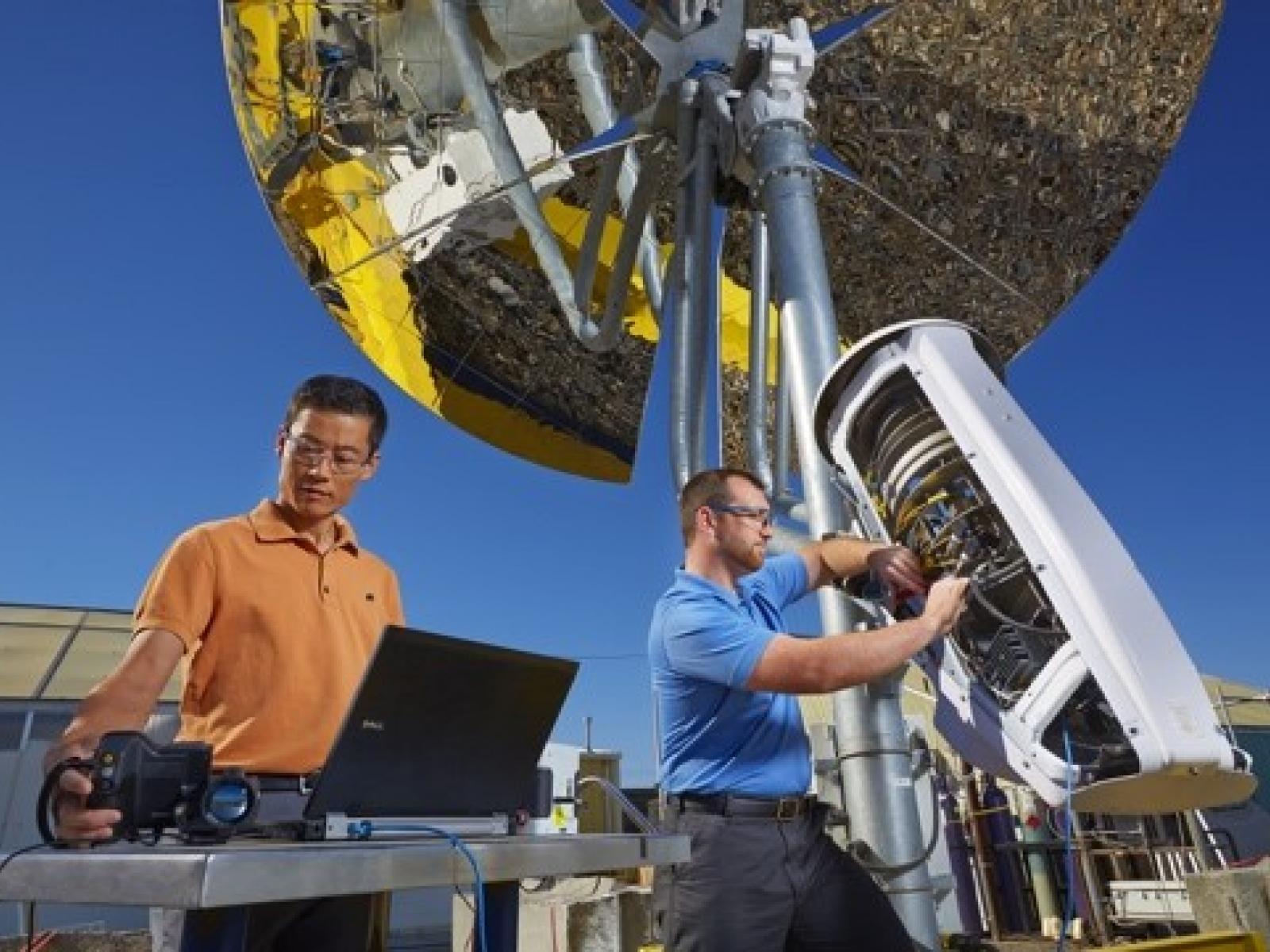Energy Processes & Materials
Division
Energy Processes & Materials
Division
PNNL’s Energy Processes and Materials Division accelerates the research discovery, development, and deployment cycle by integrating a strong science foundation with a solid understanding of industry requirements, for new technology implementation. Our bold, new ideas continuously identify and nurture the next technology breakthroughs. Our people are our most valuable and important asset and we celebrate the innovation that is inspired by teams which are diverse in background, experience, and expertise. Our division is made up of four technical groups: Advanced Energy Systems, Applied Materials and Manufacturing, Battery Materials and Systems, and Chemical and Biological Processing.
Advanced Energy Systems
We develop processes and associated materials for advanced chemical conversions and separations. This work includes converting coal, natural gas, oil, biomass, and other unconventional feedstocks to valuable fuels, chemicals, and electricity. Our accomplishments include the commercialization of microchannel technologies for reactive heat exchange, commercial development of advanced engine exhaust catalysts, and demonstration of transformational carbon capture solvent technologies.

Applied Materials and Manufacturing
We are scientists and engineers delivering scalable materials solutions to enable next-generation technologies. We develop lightweight structural materials and parts for energy efficient vehicles; invent approaches for producing or repairing materials and components with less energy and superior performance; and create new materials to enable the future hydrogen economy. Our accomplishments include the development of a new, solid-phase processing manufacturing approaches for metals, including ShAPE™ (Shear-Assisted Processing and Extrusion), research in solid-oxide fuel cell and electrolyzer cell technology, and work in formulation of robust materials for hydrogen storage and distribution.

Battery Materials and Systems
We work towards greater deployment of energy storage devices to improve the resiliency, reliability, and efficiency of the electric grid. The Battery Materials and Systems group leads national efforts, such as the Battery 500 Consortium, to address fundamental advancements that will enable next-generation battery technologies for electrical vehicles and a variety of other applications.

Chemical and Biological Processing
We develop processes and technologies that create opportunities from economic and ecological liabilities. Our catalysis and reaction engineering team finds ways to use wastes, plastics, and biomass to make fuels and chemicals. We identify and develop new technologies based on a fundamental understanding of fungi and microbes. The Process Engineering teams moves ideas from fundamental scientific understanding through commercialization.
